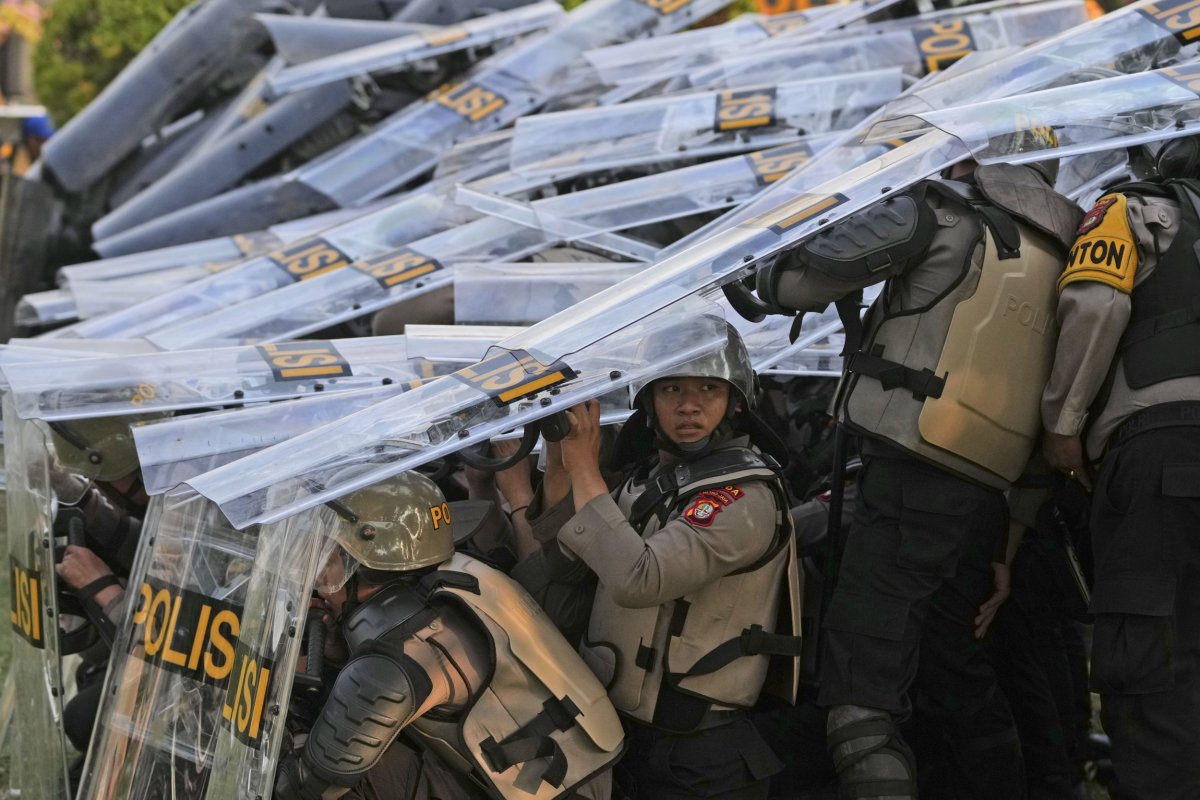Lawmakers in Indonesia backed down from plans to ratify a series of unpopular election laws after police used tear gas and water cannons to disperse thousands of angry protesters outside the country’s Parliament building.
Had the proposed amendments been approved, they could have bolstered the political influence of outgoing President, Joko Widodo.
They were set to be confirmed in a Thursday plenary session but were abandoned after the legislature failed to reach a quorum due to the scale of the protests, The Associated Press reported.
Deputy Speaker Sufmi Dasco Ahmad said: “It was stated that the revision of the regional election law cannot be implemented. This means that today the revision of the regional election law will not be implemented.”

Dita Alangkara/AP
The demonstrators, angered by what they saw as a violation of democratic principles, tried to storm into the Parliament building by breaching security barriers.
They also hurled rocks at police officers, blocked roads, burned tires, and brandished banners condemning the proposed changes.
The unrest was sparked earlier in the week, after Indonesia’s constitutional Court upheld an age restriction preventing anyone under 30 from running for regional governor positions—a decision that blocks Widodo’s youngest son, Kaesang Pangarep, who is 29, from seeking office in Central Java.

Dita Alangkara/AP
The court also eased the nomination process for political parties, which had been a significant barrier to entry.
In response, Parliament swiftly passed an emergency motion to amend the minimum age for governorship to 30 and to further relax the nomination criteria.
Lawmakers’ attempts to ratify these changes on Thursday ignited widespread criticism online, with many warning of a looming constitutional crisis.
Widodo, who is also known as Jokowi, is currently serving his second and final term and is set to leave office in October.
But his political dynasty is under scrutiny.
It is expected that his eldest son, Gibran Rakabuming Raka, will assume the vice presidency after an unpopular court ruling delivered by Widodo’s brother-in-law, then-Chief Justice Anwar Usman, exempted former regional leaders from the age limit for the vice presidency.
Usman has since been dismissed amid criticism over potential conflicts of interest.
The protests in Jakarta were mirrored in other major cities, including Bandung, Yogyakarta, Surabaya, and Makassar.
In Yogyakarta, over a thousand demonstrators rallied at the local Parliament building and other key sites, demanding that the proposed election law be scrapped, the court’s ruling be upheld, and political dynasties be rejected.
Yoes Kenawas, a political analyst at Atma Jaya Catholic University, said the synchronized protests across the country reflected widespread discontent with the legislature’s actions and a rejection of dynastic politics associated with President Widodo.
